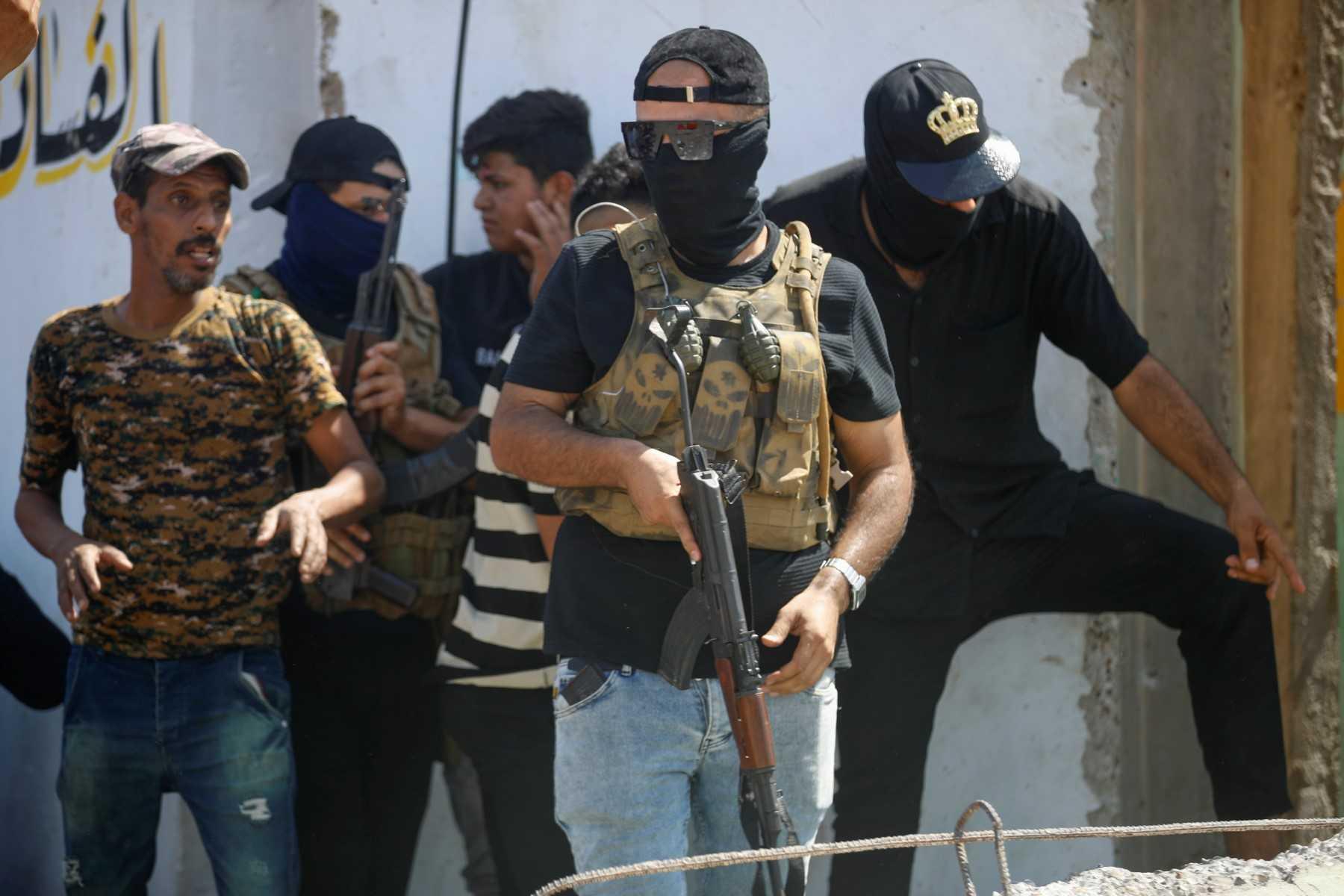Iraqi cleric Sadr calls off protests after worst Baghdad violence in years
Apologising to Iraqis after 22 people were killed in clashes between an armed group loyal to him and rival Shiite Muslim factions backed by Iran, Sadr condemned the fighting and gave his own followers one hour to disperse.
Just In
Powerful cleric Moqtada al-Sadr ordered his followers to end their protests in central Baghdad on Tuesday, easing a confrontation which led to the deadliest violence in the Iraqi capital in years.
Apologising to Iraqis after 22 people were killed in clashes between an armed group loyal to him and rival Shiite Muslim factions backed by Iran, Sadr condemned the fighting and gave his own followers one hour to disperse.
"This is not a revolution because it has lost its peaceful character," Sadr, a former anti-US insurgent leader, said in a televised address. "The spilling of Iraqi blood is forbidden."
As the deadline passed at around 2pm (1100 GMT), Sadr's followers could be seen leaving the area in the fortified Green Zone in central Baghdad where government offices are located and where they had occupied parliament for weeks.
Monday's clashes between rival factions of Iraq's Shiite majority follow 10 months of political deadlock since Iraq's October parliamentary election.
The clashes pitted loyalists of Sadr, who has positioned himself as a nationalist opposed to all foreign and especially Iranian influence, against political and armed groups backed by Iran.
Sadr emerged as the main winner in the election but failed in his efforts to form a government with Sunni Muslim Arab and Kurdish parties, excluding the Iran-backed Shiite groups.
This week's violence erupted after Sadr said he was withdrawing from all political activity – a decision he said was prompted by the failure of other Shiite leaders and parties to reform a corrupt and decaying governing system.
An Iraqi government official, speaking on condition of anonymity shortly before Sadr's address, said authorities could not impose control on the rival armed groups.
"The government is powerless to stop this, because the military is divided into (Iran) loyalists and Sadrists as well," the official said.
President Barham Salih welcomed the initial cessation of violence after Sadr's address, but warned that the political crisis was not over and called for early elections – a demand of Sadr – as a potential way out of the deadlock.
Crucially, Sadr's Shiite, Iran-aligned opponents welcomed his call for calm, including Hadi al-Amiri, the leader of the main rival political alliance to the populist cleric. "Sadr's initiative is brave and deserves praise," Amiri said in a statement.
Sadr's actions follow a pattern of confrontation and de-escalation he has repeatedly deployed in order to gain political power since he rose to prominence after the US-led invasion which toppled Saddam Hussein in 2003, said Hamdi Malik, a specialist on Iraqi Shiite militias at the Washington Institute.
Malik said Sadr has recently tried to avoid violence in order to bolster his credentials as a leader of the country's oppressed masses, but has in practice had to threaten violent disorder to get what he wants.
Caught between political or religious ambition and his role as head of a militia, "Sadr has always put himself and his followers in a situation where violence and bloodshed seems inevitable, but then he always turns round and rejects the violence", Malik said.
Oil exports flowing
Earlier on Tuesday, militants fired rockets at the Green Zone and gunmen cruised in pickup trucks carrying machine guns and brandishing grenade launchers, while most residents observed a curfew which was lifted after Sadr's statement.
The US described the unrest as disturbing and called for dialogue to ease Iraq's political problems.
Neighbouring Iran briefly closed the border and halted flights to Iraq.
Emirates and flydubai airlines cancelled flights to and from Baghdad on Tuesday and Wednesday, but sources said oil exports from Opecs's second-largest producer were unaffected by the turmoil.
Sadr has positioned himself as a nationalist who opposes all foreign interference, whether from the US and the West or from Iran.
He commands a thousands-strong militia and has millions of loyal supporters across the country. His opponents, longtime allies of Tehran, control dozens of paramilitary groups heavily armed and trained by Iranian forces.
"There are uncontrolled militias, yes, but that does not mean the Sadrist Movement should also be uncontrolled," Sadr said in his address calling off the protests.
Subscribe to our newsletter
To be updated with all the latest news and analyses daily.
Most Read
No articles found.
